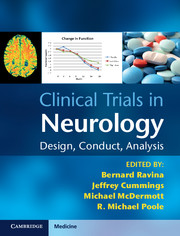20 - Parkinson’s Disease
from Section 6
Published online by Cambridge University Press: 05 May 2012
Summary
- Type
- Chapter
- Information
- Clinical Trials in NeurologyDesign, Conduct, Analysis, pp. 215 - 226Publisher: Cambridge University PressPrint publication year: 2012



